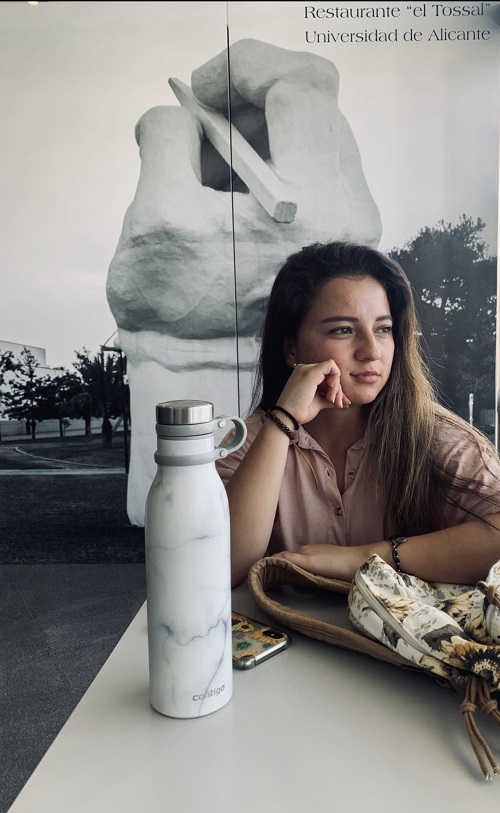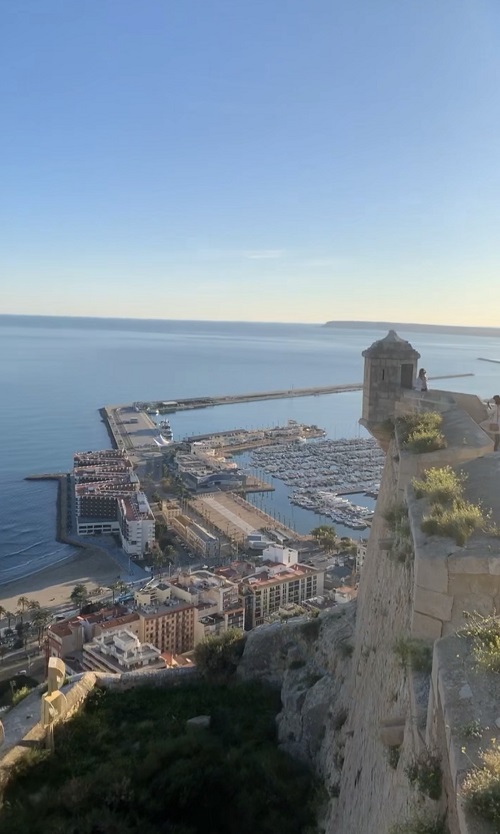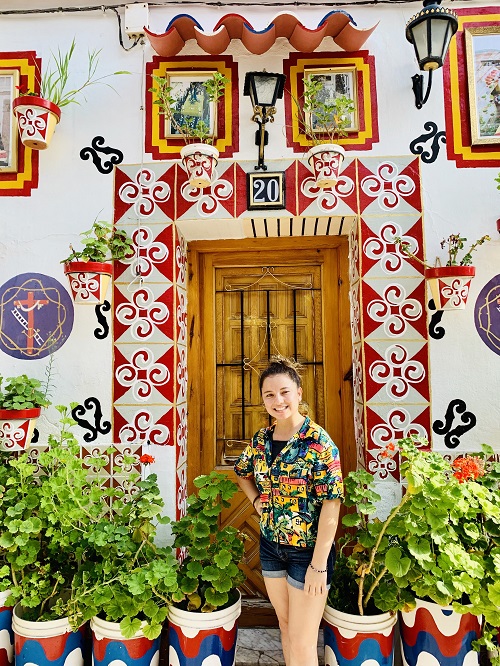A lot of people who go to college go in with the mindset that they are going to study abroad. As freshman year and sophomore year go by, students start to give up on that dream, because not only does life get in the way -- but finances do, too. I know many students who wanted to go abroad but after seeing the amount of money that it costs, they decided they were not going to go. I was nervous when I saw the cost of going abroad, too; however, I wanted to have that once-in-a-lifetime experience, so I began to find ways that would help me fund my experience.

I am a Chicana, which makes me a minority. For those of you who don’t know, only 17% of minorities from the United States study abroad, and only 8%-10% of Chicanas/Latinas study abroad. Not only are these percentages low (because it is uncommon for minorities to leave home for a long time), but it is also because many minorities do not have or feel like they have the funds to go abroad. I am here to tell you that I come from a low-income family and I was still able to fulfill my dream of studying abroad.
If you are wanting to study abroad in Spain but you are tight on money, I was in the same place -- so I am here to give you some tips. First, the cost of your study abroad program will vary on what country and city you decide to go to. You will need to figure that out before you go on to the next step. Once you have figured that out, you should talk to your advisors or the financial aid office at your school, because they can give you an estimate as to how much financial aid you will get for the country/city you choose. From there, you can decide whether you still need some extra cash. I personally did need extra money, so I worked and saved up. Also, I applied to two study abroad scholarships that my school, the University of California - Riverside, offered, and I was awarded them. I recommend you go on your school website and search for scholarships that they offer. Every school is different, so you you can ask your advisor about more details on scholarships that your school offers. In addition, CEA does offer scholarships, so I encourage you to look into those and apply before the deadline.

I would also recommend getting a credit card. I know a lot of people get frightened by the thought of having a credit card, because maybe your parents or other people you know are in debt. However, I do not suggest you get one and use it for random purposes. I would recommend you have it for emergencies, strictly. Capital One, for example, is a great credit card to get because they do not charge you international fees when you use it.

Lastly, before I went on my study abroad experience to Alicante, Spain, I made a budget for every month that I was going to be there. I looked at the money financial aid was going to give me, the scholarships I got, and what I had saved up from working. I believe that budgeting is very important, because it gives you security and stability. This will result in you enjoying your experience rather than stressing. One last tip that I will give you is to ask your friends and family for some money. But do it in a kind way -- for example, you can make a GoFundMe account and you can share the link with friends and family on social media. You can also do a fundraiser, like selling food or snacks at church or your sibling's sports game.
All in all, if there is a will there's a way. There are many resources out there that can help make your study abroad wish come true. Do not be afraid to ask people for help, and do your research on scholarship opportunities! I wish you the best of luck.
Esther Rivera is a CEA Alumni Ambassador who studied abroad in Alicante, Spain, during the Fall 2019 semester. She is currently a student at the University of California - Riverside.

I am a Chicana, which makes me a minority. For those of you who don’t know, only 17% of minorities from the United States study abroad, and only 8%-10% of Chicanas/Latinas study abroad. Not only are these percentages low (because it is uncommon for minorities to leave home for a long time), but it is also because many minorities do not have or feel like they have the funds to go abroad. I am here to tell you that I come from a low-income family and I was still able to fulfill my dream of studying abroad.
If you are wanting to study abroad in Spain but you are tight on money, I was in the same place -- so I am here to give you some tips. First, the cost of your study abroad program will vary on what country and city you decide to go to. You will need to figure that out before you go on to the next step. Once you have figured that out, you should talk to your advisors or the financial aid office at your school, because they can give you an estimate as to how much financial aid you will get for the country/city you choose. From there, you can decide whether you still need some extra cash. I personally did need extra money, so I worked and saved up. Also, I applied to two study abroad scholarships that my school, the University of California - Riverside, offered, and I was awarded them. I recommend you go on your school website and search for scholarships that they offer. Every school is different, so you you can ask your advisor about more details on scholarships that your school offers. In addition, CEA does offer scholarships, so I encourage you to look into those and apply before the deadline.

I would also recommend getting a credit card. I know a lot of people get frightened by the thought of having a credit card, because maybe your parents or other people you know are in debt. However, I do not suggest you get one and use it for random purposes. I would recommend you have it for emergencies, strictly. Capital One, for example, is a great credit card to get because they do not charge you international fees when you use it.

Lastly, before I went on my study abroad experience to Alicante, Spain, I made a budget for every month that I was going to be there. I looked at the money financial aid was going to give me, the scholarships I got, and what I had saved up from working. I believe that budgeting is very important, because it gives you security and stability. This will result in you enjoying your experience rather than stressing. One last tip that I will give you is to ask your friends and family for some money. But do it in a kind way -- for example, you can make a GoFundMe account and you can share the link with friends and family on social media. You can also do a fundraiser, like selling food or snacks at church or your sibling's sports game.
All in all, if there is a will there's a way. There are many resources out there that can help make your study abroad wish come true. Do not be afraid to ask people for help, and do your research on scholarship opportunities! I wish you the best of luck.
Esther Rivera is a CEA Alumni Ambassador who studied abroad in Alicante, Spain, during the Fall 2019 semester. She is currently a student at the University of California - Riverside.









